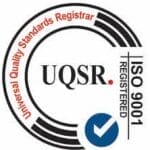What is talent management?
Talent management includes recruitment, hiring, and long-term retention of the most creative individuals in the organization. This process contributes to better organizational performance by recognizing talent gaps or vacant positions and recruiting the proper candidates for such positions in the company.
Companies that spend immense effort structuring their workers and keeping them engaged tend to be revolutionary and profitable businesses. On the contrary, businesses unable to retain talent tend to have low customer satisfaction and inconsistency in the quality of work.
What is involved in talent management?
The key areas in talent management that play a very significant role are provided below.
- Finding and hiring the right people.
- Fostering learning and growth opportunities.
- Managing and rewarding performance effectively.
- Tailoring the employee experience to meet diverse needs.
- Optimizing workforce planning and strategy to align with organizational goals.
These elements are vital to a good talent management strategy that helps businesses stay resilient and adapt to change in dynamic business environments.
Benefits of talent management
The benefits of talent management are as follows:
- Recruit in-demand talent- Attracting and hiring highly skilled candidates for the job roles
- Minimize disruptions- Unplanned departures create gaps in coverage, but Filing positions will be easy and efficient when a business has a proper talent pipeline.
- Improve productivity- Continuous coaching sessions concentrate on developing employee skills, resulting in greater efficiency.
- Reduce costs- Accommodating valued employees in the company will almost always cost less than hiring and training new hires.
- Innovate- .Talented teams identify new ways of problem solving and benefit more from the advancements of technology.
What is the talent management process?
Talent management is a process that involves searching for the right people, assisting them in knowing their strengths and using them to perform and lead more effectively. A good employer makes sure they follow the following steps:
- Recruit: The sources of the candidates would be both internal and external, together with the ones previously used by the organization, such as employee referrals, social networks, job boards, etc.
- Hire: Use any analysis tools, pre-screening questionnaires, skills tests, and interviews to narrow it down to a select few candidates who should be made an offer.
- Develop: Provide learning and development resources relevant to employee expectations so that they can do their jobs more effectively.
- Engage: Keep teams connected and focused through engagement tools that help identify retention risks.
- Perform: Monitor all employees and collect data to make informed decisions for the workforce.
- Recognize: Address fair compensation and reward top performers.
- Plan: Make succession plans that enable promising career advancements for employees whenever openings are available.
Understanding NDIS and Employment
This area of work focuses much on employment, which is crucial to enhancing the quality of life for NDIS participants. NDIS provides programs and initiatives that advocate improving employability for people with disabilities.
NDIS participants have access to numerous kinds of employment supports, all tailored to the participant’s individual needs. These may include:
- Job coaching sessions: One-on-one coaching sessions designed to help the participants develop skills and confidence needed in the workplace.
- Work Modifications: A portion of funding is provided to ensure that necessary modifications to the workplace environment are in place to accommodate the participant’s needs.
- Training and Education: This involves programs and courses available to improve employability.
- Employment Preparedness: This can include resume writing, preparation for interviews, and aiding in job searches
Integrating NDIS Programs with Talent Management
Inclusive Recruitment
Under NDIS-focused talent management, recruiting processes are inclusive. Organizations are expected to embrace accessible recruitment strategies, ensuring that different audiences, including people with disabilities, see job postings. Accessibility of applications and websites and connection with disability employment services are also important.
Inclusive Onboarding and Training Programs
These programs are customised according to the employee’s needs while addressing expectations and standards of the company’s culture post-employment. Employers design these sessions to cater individual learning styles and training needs that involve assistive technologies and flexible training schedules.
Workplace Adjustments
Reasonable workplace adjustments are essential to support people with disabilities well. These adjustments can include physical changes in the workplace, providing specialized equipment, flexible work hours, and remote work options.
Conclusion
Integrating the NDIS program into talent management is about embracing diversity and welcoming the unique skills that people with disabilities can contribute to the workplace. Inclusive practices in talent management significantly enhance organizational diversity and improve workforce productivity.
This approach not only assists people with disabilities in accessing meaningful employment but also helps organizations access a broader base of talents and perspectives, leading to innovation and an inclusive society.








